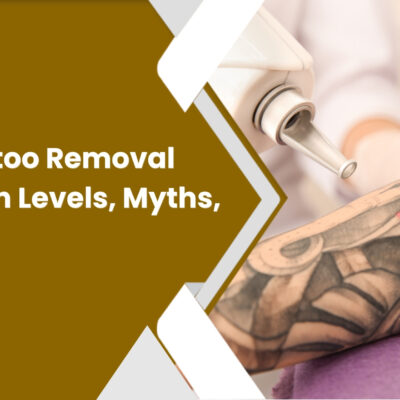Smoking has long been linked to serious health problems, but one of its most overlooked consequences is the toll it takes on your mouth. Beyond the surface stains and lingering smell, tobacco use can deeply affect your oral health from weakening your gums to accelerating tooth loss. Whether you’re a current smoker or considering quitting, it’s worth understanding just how significantly your habit can impact your smile.
The Oral Health Effects of Smoking
When people think of smoking-related illnesses, lung cancer or heart disease often come to mind first. But your mouth is one of the first places where the damage begins.
Impact on Gums and Tissues
Dental implants Basildon clinics often see patients struggling with gum issues caused by years of smoking. That’s because smoking reduces blood flow to the gums, weakening the tissues and slowing down healing.
- Gum disease risk triples: Smokers are up to three times more likely to develop gum disease (periodontitis), which can lead to tooth loss.
- Reduced oxygen supply: Healing after dental procedures becomes more difficult, and infections can worsen faster.
- Tissue damage: Nicotine causes blood vessels to constrict, which deprives gum tissues of the nutrients they need.
Teeth Discolouration and Staining
It’s no secret that smoking stains teeth, but the science behind it is worth noting.
- Tar and nicotine bind to enamel, causing yellow or brownish discolouration.
- Over time, this becomes harder to remove with regular brushing and often requires professional whitening.
- Cosmetic options like invisalign Basildon can help straighten teeth, but stained enamel still needs separate treatment.
Smoking and Bad Breath
Bad breath (halitosis) is a common complaint among smokers. It’s caused by:
- The drying effect of smoke on the mouth, which reduces saliva
- The build-up of odour-producing bacteria on the tongue and gums
- The lingering smell of tobacco in the lungs and oral tissues
Even if you brush regularly, smoking-related bad breath tends to persist, and mouthwash may only provide a short-term fix.
Delayed Healing and Surgery Risks
One of the biggest concerns for dentists is how smoking affects recovery after procedures such as:
- Tooth extractions
- Periodontal treatments
- Dental implants Basildon patients often face higher failure rates if they smoke
Why Healing Is Slower
- Smoking reduces blood circulation, making it harder for the body to deliver nutrients and immune cells to the surgical site.
- There’s also an increased chance of developing a dry socket after a tooth extraction a painful condition where the blood clot is dislodged or doesn’t form properly.
Impact on Bone Density and Tooth Loss
Over time, smoking doesn’t just affect your gums it can also lead to bone loss in the jaw which supports your teeth.
- Studies show that long-term smokers can experience greater jawbone shrinkage.
- Once bone is lost, it becomes much harder to support natural teeth or to qualify for treatments like dental implants Basildon dentists may recommend.
| Condition | Non-smoker | Smoker |
| Gum Disease Risk | Low to Moderate | High (3x higher) |
| Dental Implant Success | 95% | 70–85% |
| Bone Loss Risk | Moderate | High |
Data from British Dental Journal and Oral Health Foundation
Effects on Orthodontic Treatment
Smoking can also compromise the results of orthodontic treatments, including invisalign Basildon patients often pursue for discreet teeth alignment.
- Nicotine can cause gum recession, which alters how teeth move in response to aligners.
- It also increases plaque and tartar, potentially interfering with progress.
- Smoking while using invisalign Basildon aligners can stain them, making them more visible and less hygienic.
If you’re investing in straightening your teeth, smoking can reduce the effectiveness and increase complications during your treatment.
Oral Cancer Risk
One of the most serious outcomes of smoking is the increased risk of oral cancer. Tobacco—whether smoked or chewed—contains carcinogenic chemicals that can lead to:
- Mouth ulcers that do not heal
- Red or white patches inside the mouth
- Lumps or swelling in the cheeks, tongue, or jaw
According to Cancer Research UK, around two-thirds of mouth cancer cases are linked to tobacco use. The prognosis improves with early detection, which is why regular check-ups are essential for smokers.
Early Signs Smokers Shouldn’t Ignore
While smoking hides some signs of disease (like gum bleeding), there are other symptoms you shouldn’t overlook:
- Persistent bad taste in the mouth
- Loose teeth or shifting bite
- Increased tooth sensitivity
- Receding gums exposing tooth roots
Noticing any of these? It’s time for a dental check-up, even if you think your oral hygiene is solid.
Can Smokers Improve Their Oral Health?
Absolutely. While quitting tobacco is the best step, even reducing how much you smoke and improving your oral care routine can help.
Tips for Improving Oral Health as a Smoker:
- Visit your dentist every 6 months: Or more frequently if you have existing gum disease.
- Brush twice daily: Use fluoride toothpaste and a soft-bristle brush.
- Floss daily: Smoking increases plaque build-up between teeth.
- Use antibacterial mouthwash: This can help reduce bacteria and bad breath.
- Talk to your dentist about whitening options: If discolouration is a concern.
If you’re undergoing invisalign Basildon treatment, it’s essential to remove aligners while smoking and rinse your mouth before reinserting them.
NHS Support and Alternatives
For those ready to quit, the NHS provides free Stop Smoking services, which include:
- Nicotine replacement therapy (NRT)
- Support groups
- One-on-one sessions with trained advisors
Your dentist can also point you in the right direction and help monitor improvements in your oral health once you start your quit journey.
Conclusion
The effects of smoking on oral health are both immediate and long-lasting, affecting everything from your breath to your jawbone. But the good news is that support and solutions are available. At Smilo Dental Implants Group we’re here to guide you through treatments that fit your lifestyle and help protect your smile for the future. Whether you’re a smoker or an ex-smoker, our experienced team can support you with tailored care and practical advice every step of the way.







